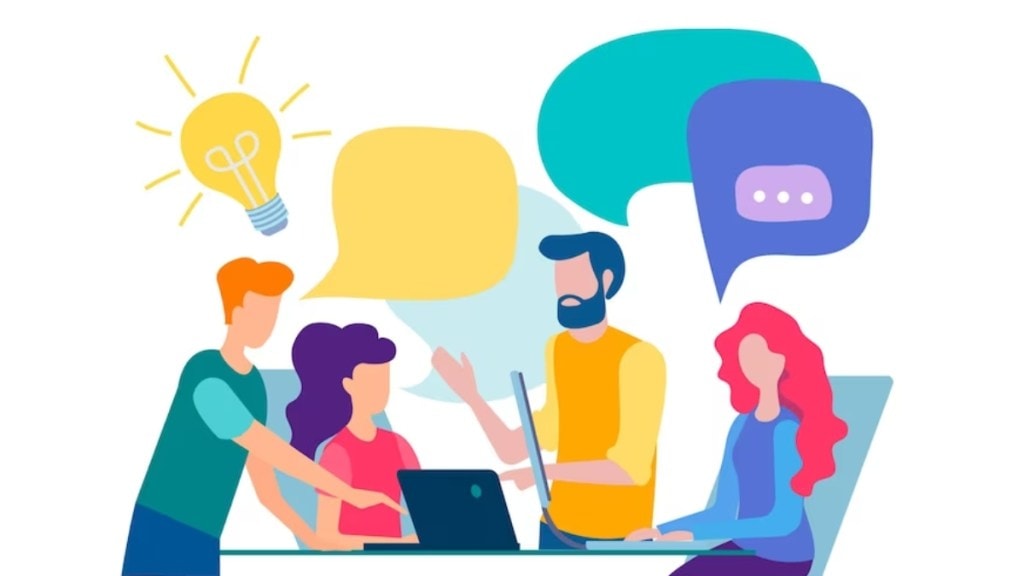By Kashvi Jindal
In the fast-evolving landscape of education, where technological advancements and global interconnectedness shape the future, one skill stands out as the cornerstone of success: communication. Beyond textbooks and standardised tests, the ability to convey thoughts, collaborate effectively, and navigate the complexities of an interconnected world has become utmost important. In this article, we explore why communication skills are integral to modern education and how they empower students for success in the 21st century.
Gone are the days when education solely revolved around memorization and one-on-one learning. Modern education acknowledges the need for students to be not only knowledgeable but also adept communicators. In a world where collaboration knows no borders, effective communication becomes the bridge that connects diverse perspectives and facilitates the exchange of ideas.
Preparing for a Globalised World
The interconnected nature of our global society demands individuals who can communicate across cultures and borders. Communication skills empower students to express themselves clearly, understand diverse perspectives, and engage in meaningful dialogue. This not only fosters a sense of global awareness but also prepares them for the multicultural environments they are likely to encounter in their academic and professional journeys.
Enhancing Critical Thinking and Problem-Solving
Communication skills are not just about delivering polished presentations; they are inseparable from critical thinking and problem-solving. The ability to articulate thoughts and ideas coherently forces students to clarify their thinking, analyse information, and synthesise knowledge. These skills go hand-in-hand, creating a dynamic synergy that enhances overall cognitive abilities.
Fostering Collaboration and Teamwork
The era of the lone genius is fading, making room for collaborative problem-solving. Communication skills are at the heart of effective teamwork. Whether through verbal discussions, written reports, or digital collaboration tools, students need to convey their ideas and understand the perspectives of others. These skills are crucial not only for academic group projects but also for preparing students to thrive in collaborative work environments.
Navigating the Digital Landscape
In an age where information travels at the speed of light and social media platforms shape public discourse, digital communication skills are non-negotiable. Modern education must equip students with the ability to navigate and critically evaluate digital information. From crafting thoughtful emails to participating in online discussions, these skills are essential for success in academia and the professional world.
Building Emotional Intelligence
Communication is not just about words; it encompasses emotions and empathy. Modern education recognizes the importance of emotional intelligence, and effective communication is a key component. Students who can express themselves empathetically and understand the emotions of others are better equipped to navigate social dynamics, resolve conflicts, and build positive relationships.
Preparing for Evolving Careers
The job market is evolving, with employers increasingly valuing soft skills over purely technical expertise. Communication skills are consistently ranked among the top desired attributes by employers. A student might excel in their field, but without the ability to communicate effectively, their potential impact is limited. Modern education aims to produce well-rounded individuals who not only possess technical know-how but can also convey their ideas persuasively.
Empowering Self-Expression
Every student is unique, with their own thoughts, ideas, and perspectives. Communication skills empower students to express themselves authentically. Whether through oral presentations, written essays, or multimedia projects, students learn to harness their creativity and share their unique voices with the world. This self-expression is not just valuable in academia; it is a lifelong skill that contributes to personal fulfilment and success.
Overcoming the Fear of Public Speaking
Public speaking consistently ranks high among common fears. However, modern education recognizes that overcoming this fear is essential for personal and professional growth. By integrating public speaking opportunities into the curriculum, educators help students build confidence, articulate ideas persuasively, and develop a skill set that will serve them well in various aspects of their lives.
Embracing Diverse Communication Modalities
Communication is no longer confined to traditional forms. Modern education acknowledges the importance of diverse communication modalities, including visual communication, digital storytelling, and multimedia presentations. These skills not only cater to varied learning styles but also prepare students to effectively communicate in a world where information is often conveyed through a combination of words, images, and multimedia elements.
In conclusion, communication skills have gone beyond their status as mere academic requirements; they have become a lifelong skillset essential for success in the complex and interconnected world of the 21st century. Modern education recognizes that fostering effective communication goes beyond preparing students for exams; it equips them for the challenges and opportunities they will encounter in their personal and professional lives. As we navigate the ever-changing landscape of education, let us continue to prioritise and celebrate the development of communication skills as a fundamental building block for a future generation ready to thrive in an evolving world.
The author is founder of InvestTheChange. Views are personal.
